Table of Contents
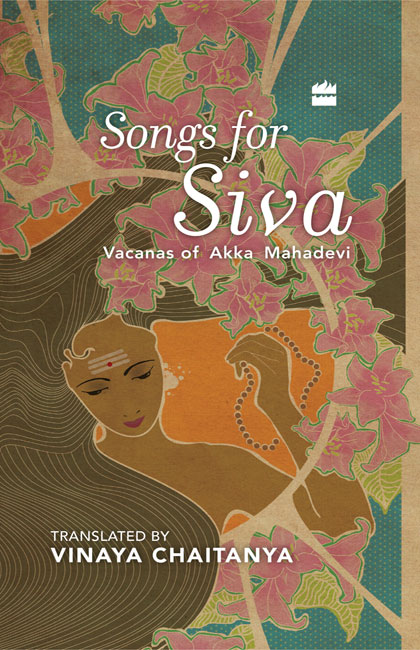
SONGS FOR SIVA Vacanas of Akka Mahadevi Translated by Vinaya Chaitanya

NEW YORK LONDON TORONTO SYDNEY NEW DELHI CONTENTS H.S. SHIVAPRAKASH
Beautiful as jasmine but pointed like an arrow The vacanas of Akka Mahadevi Karnatakas greatest treasure were first made available throughout the English-speaking world thirty years ago, in the late A.K. Ramanujans translations in
Speaking of Siva. These were not the first translations, but the earlier ones were incapable of conveying Akkas tough lyricism to a non-Kannada readership. Ramanujan was able to capture successfully those aspects of his source texts that lent themselves to translation into the Anglo-American poetic language of the time. Despite the shortcomings of his translations, the unmistakable power of the original struck a chord in the hearts of the English-reading public both in India and in the West.
Now, decades later, the time is ripe for a new translation of Akkas vacanas, for no single version can do justice to their many riches. There are two major problems with the existing translations of these vacanas. The subject of Ramanujans version is a spiritless body who resembles an accomplished athlete rather than Akkas hero, who can imbue the spirit with physical warmth. On the other hand, in their enthusiasm to communicate the spirit of the writings, translators before him impaired their corporeality; the protagonist who emerges from them is a disembodied god without face or flesh, devoid of all beauty and power. They interpreted Akkas vacanas as either scriptural or poetic texts. In fact they are neither.
The twelfth-century saint poets of Karnataka held both scriptures and poetry in low esteem; indeed Adayya, a prolific poet of the period, considers both to be mere allegories. Those who believe in and live according to these allegories, says Adayya, are born of similes and die into similes. In short, vacana poets of Karnataka were aiming for something quite different from both the secular and the religious expression of their times. Because they believed deed (nade) to be embodiment of word (nudi), they mercilessly attacked all scripture and poetry that spoke of the imagined and idealized, and not of the experienced and lived truth. How can those who have known no suffering / feel the suffering of those in pain? asks Akka in one of her vacanas. I am indebted to Vinaya Chaitanya for asking me to write this foreword, a task made easier by his well-informed and lucid notes, which will give the intended (non-Kannadiga) reader a key to the mysteries of this treasure trove.
Unlike his predecessors, Chaitanya is admirably receptive to the experiential dimensions of Akkas vacanas. Although he is alive to their socio-political nuances, his approach to them is above all a spiritual one. He has the open-minded humility of a genuine sadhak in the tradition of Narayana Guru of Kerala, who shared many of the socio-philosophical concerns of the twelfth-century saints of Karnataka, for instance, opposition to caste hierarchies and bigotry of all kinds. Chaitanyas non-Kannada background gives him the advantage of objectivity, while his engagement with and personal experience of sadhana enables him to appreciate the overpowering resonance of Akkas words. He shows, moreover, an acute awareness of textual issues that never bothered earlier translators. Most important of all, he has understood the multifacetedness of the original texts, for Akkas compositions are poetic without being poetry, spiritual without being religious or scriptural.
This crucial awareness informs his work even when the nuances of the words cannot be conveyed in translation. Whenever the word Channamallikarjuna appears here, for example, it bears the suffix jasmine-tender. But this tenderness is only one attribute of Akkas hero: he also has the brute strength of Arjuna, indefatigable archer. Akka describes herself as a woman only in name. In her longing for and union with her Cosmic Hero, Channamallikarjuna beautiful as jasmine but hard and pointed like an arrow she has lost her sexual identity, the basis of all dualisms. Though Chaitanya does not bring this out in his translation, the overall perception and selection of vacanas is informed by deep understanding of this essential point.
Let me conclude by sharing what I consider to be the essence of Akkas unique vacanas. One has the here, another the hereafter, / One has no here, another no hereafter. / Another has neither here nor hereafter. / Those who have taken refuge in Channamallikarjuna, jasmine-tender, have both the here and the hereafter. With these words, she offers the world what it has found and lost over and over again: the awesome courage of lifelong surrender, something that has eluded materialists and spiritualists, theists, atheists and agnostics alike. Akkas words embody and act out an inextinguishable love that is found only through self-effacement.
It is precise and to the point, unlike that vague, universal love which seeks to love all despite being unable to love any one being. Neither is it limited, like the various forms of individual and collective selfish love that prevail in the world today. It is an intense vision and experience of the source of all love and all longing that alone can quench the thirst for all forms of thirst. It is entirely unlike the dukkha of Buddhism, the maya of Vedanta or the sin of Christianity. It is that naked primeval desire which is the mother of all desire. It burns and pines with love and throbs with irrepressible expectation.
It is Channamallikarjuna, the name Akka gave to her path of Siva, where heaven and hell become one in the clear understanding of continuous awareness, turning nectar and poison into each other. For, in the true path of Siva, as Acharya Utpaladeva said, even poison turns into nectar and misery to joy. The image of Akka that emerged in earlier translations is of a radical woman poet prefiguring many of the concerns of present-day feminism. The image of our own age as reflected in Akkas vacanas is accurate as far as it goes, but there are important differences. The experience of the sacred precisely what our age has lost sight of is the very breath of Akkas vacanas, and Vinaya Chaitanya is to be commended for bringing this aspect of the author to the fore. There is little doubt that his labour of love will appeal to a wide readership, for in Akkas vacanas is Sivas plenty.
Students and practitioners of literature, history, sociology, womens studies, philosophy and religion are sure to find Akkas vacanas fascinating in many different ways, while these vacanas are of great significance also to true spiritual seekers everywhere. In an age teeming with half-baked and imperfect gurus, the authentic and enduring voice of Akka the great Sivaguru can bring greater light and shaktipat, transmission of energy, to a world in which both are in short supply. H.S. Shivaprakash. Chaitra Pournima, Vasanta Masa, Svabhanu Samvatsara VINAYA CHAITANYA United like word and meaning are Parvati and Paramesvara,The twin parents of the universe; them I adore With these opening lines from Kalidasas Raghuvamsa, let us invoke the blessings of our prime parents in order to find meaning not only of words, but also of life itself the meaning of all meanings. Background Siva sometimes seen sitting alone in silent contemplation on snowy peaks, sometimes less austerely under a spreading banyan tree surrounded by disciples both human and animal is always portrayed facing south; hence he is sometimes called Dakshinamurti, the South-facing Lord.
In the south, at the extreme tip of peninsular India where oceans meet, stands Kanyakumari, the Virgin Goddess, meditating on her lover-lord, the crescent-wearing madman of the north. It is between these extremities the snowy peaks of Kailas and the watery depths of the southern oceans that the poetry of Indian spirituality has its being. The extremes can also be seen as representing the ambivalence present in human knowledge itself: between concepts and percepts, names and forms, mind and matter, male and female and all such antinomies. These poles cancel each other out in a poetic upsurge that fills consciousness completely, eliminating the duality of the knowing subject and the known object. It is the dialectics between male and female that makes for the creative evolution of the world. When these opposites are united in harmony, there is peace and contentment; when the balance between them is lost, there is suffering.



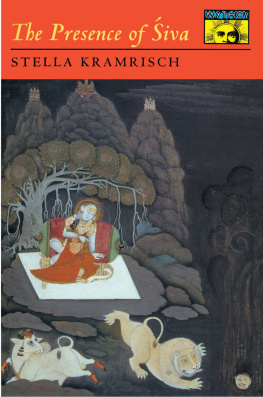
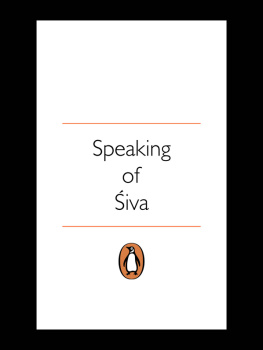
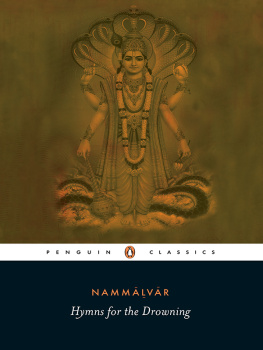


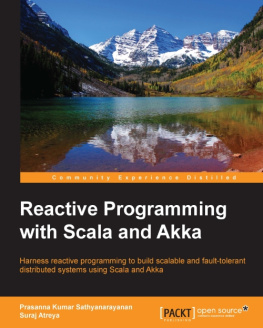
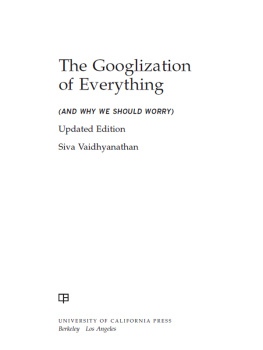

 SONGS FOR SIVA Vacanas of Akka Mahadevi Translated by Vinaya Chaitanya
SONGS FOR SIVA Vacanas of Akka Mahadevi Translated by Vinaya Chaitanya  NEW YORK LONDON TORONTO SYDNEY NEW DELHI CONTENTS H.S. SHIVAPRAKASH Beautiful as jasmine but pointed like an arrow The vacanas of Akka Mahadevi Karnatakas greatest treasure were first made available throughout the English-speaking world thirty years ago, in the late A.K. Ramanujans translations in Speaking of Siva. These were not the first translations, but the earlier ones were incapable of conveying Akkas tough lyricism to a non-Kannada readership. Ramanujan was able to capture successfully those aspects of his source texts that lent themselves to translation into the Anglo-American poetic language of the time. Despite the shortcomings of his translations, the unmistakable power of the original struck a chord in the hearts of the English-reading public both in India and in the West.
NEW YORK LONDON TORONTO SYDNEY NEW DELHI CONTENTS H.S. SHIVAPRAKASH Beautiful as jasmine but pointed like an arrow The vacanas of Akka Mahadevi Karnatakas greatest treasure were first made available throughout the English-speaking world thirty years ago, in the late A.K. Ramanujans translations in Speaking of Siva. These were not the first translations, but the earlier ones were incapable of conveying Akkas tough lyricism to a non-Kannada readership. Ramanujan was able to capture successfully those aspects of his source texts that lent themselves to translation into the Anglo-American poetic language of the time. Despite the shortcomings of his translations, the unmistakable power of the original struck a chord in the hearts of the English-reading public both in India and in the West.